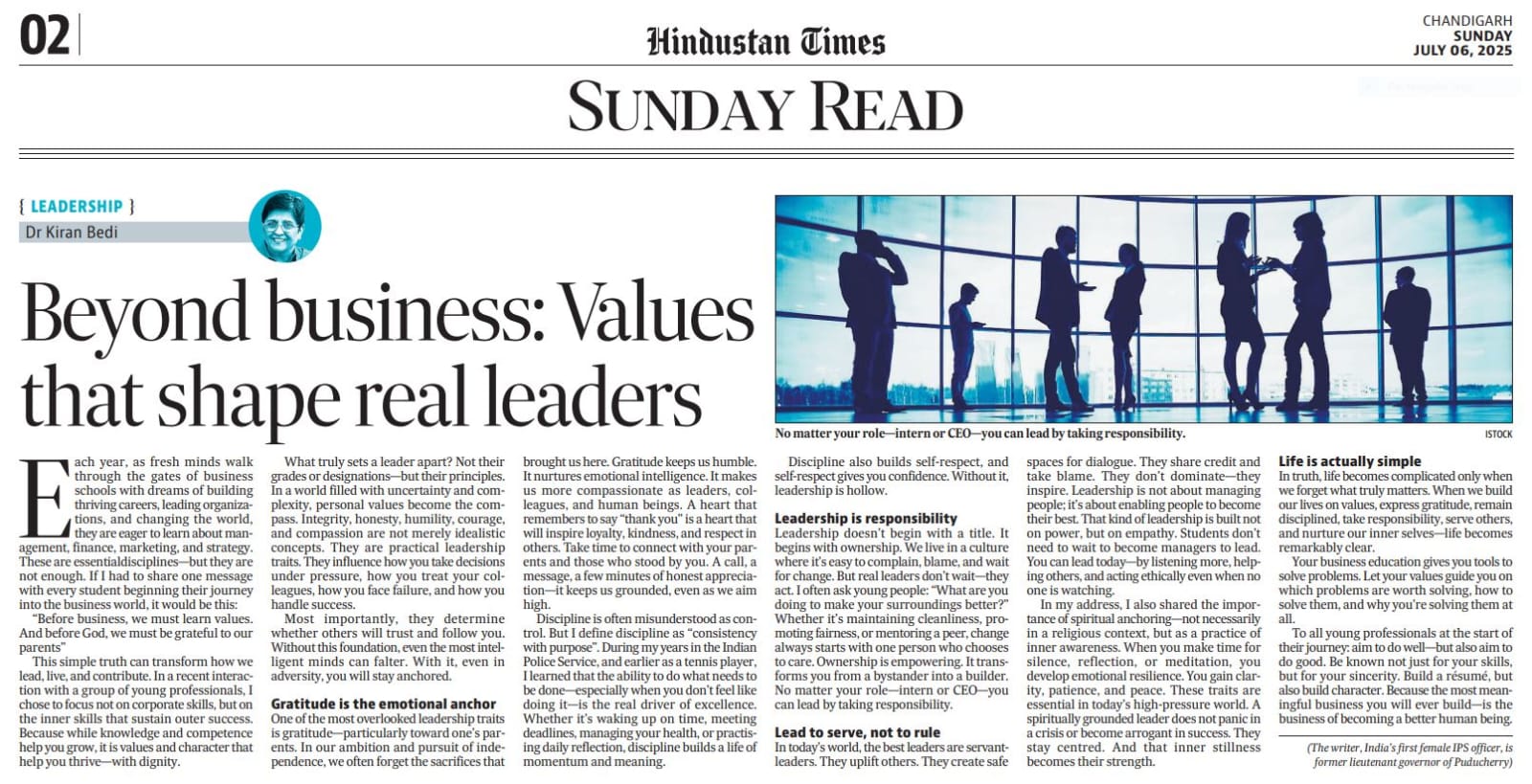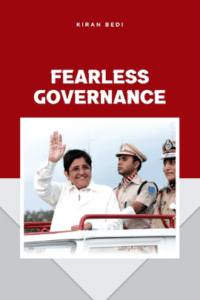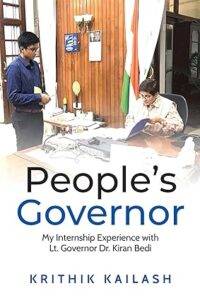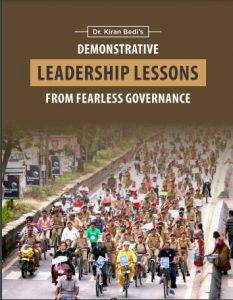
Leadership | Beyond business: Values that shape real leaders
During my years in the Indian Police Service, and earlier as a tennis player, I learned that the ability to do what needs to be done—especially when you don’t feel like doing it—is the real driver of excellence
Each year, as fresh minds walk through the gates of business schools with dreams of building thriving careers, leading organizations, and changing the world, they are eager to learn about management, finance, marketing, and strategy. These are essentialdisciplines—but they are not enough. If I had to share one message with every student beginning their journey into the business world, it would be this:
“Before business, we must learn values. And before God, we must be grateful to our parents”
This simple truth can transform how we lead, live, and contribute. In a recent interaction with a group of young professionals, I chose to focus not on corporate skills, but on the inner skills that sustain outer success. Because while knowledge and competence help you grow, it is values and character that help you thrive—with dignity.
What truly sets a leader apart? Not their grades or designations—but their principles. In a world filled with uncertainty and complexity, personal values become the compass. Integrity, honesty, humility, courage, and compassion are not merely idealistic concepts. They are practical leadership traits. They influence how you take decisions under pressure, how you treat your colleagues, how you face failure, and how you handle success.
Most importantly, they determine whether others will trust and follow you. Without this foundation, even the most intelligent minds can falter. With it, even in adversity, you will stay anchored.
One of the most overlooked leadership traits is gratitude—particularly toward one’s parents. In our ambition and pursuit of independence, we often forget the sacrifices that brought us here. Gratitude keeps us humble. It nurtures emotional intelligence. It makes us more compassionate as leaders, colleagues, and human beings. A heart that remembers to say “thank you” is a heart that will inspire loyalty, kindness, and respect in others. Take time to connect with your parents and those who stood by you. A call, a message, a few minutes of honest appreciation—it keeps us grounded, even as we aim high.
Discipline is often misunderstood as control. But I define discipline as “consistency with purpose”. During my years in the Indian Police Service, and earlier as a tennis player, I learned that the ability to do what needs to be done—especially when you don’t feel like doing it—is the real driver of excellence. Whether it’s waking up on time, meeting deadlines, managing your health, or practising daily reflection, discipline builds a life of momentum and meaning.
Discipline also builds self-respect, and self-respect gives you confidence. Without it, leadership is hollow.
Leadership is responsibility
Leadership doesn’t begin with a title. It begins with ownership. We live in a culture where it’s easy to complain, blame, and wait for change. But real leaders don’t wait—they act. I often ask young people: “What are you doing to make your surroundings better?” Whether it’s maintaining cleanliness, promoting fairness, or mentoring a peer, change always starts with one person who chooses to care.
Ownership is empowering. It transforms you from a bystander into a builder. No matter your role—intern or CEO—you can lead by taking responsibility.
Lead to serve, not to rule
In today’s world, the best leaders are servant-leaders. They uplift others. They create safe spaces for dialogue. They share credit and take blame. They don’t dominate—they inspire. Leadership is not about managing people; it’s about enabling people to become their best. That kind of leadership is built not on power, but on empathy. Students don’t need to wait to become managers to lead. You can lead today—by listening more, helping others, and acting ethically even when no one is watching.
In my address, I also shared the importance of spiritual anchoring—not necessarily in a religious context, but as a practice of inner awareness. When you make time for silence, reflection, or meditation, you develop emotional resilience. You gain clarity, patience, and peace. These traits are essential in today’s high-pressure world. A spiritually grounded leader does not panic in a crisis or become arrogant in success. They stay centred. And that inner stillness becomes their strength.
Life is actually simple
In truth, life becomes complicated only when we forget what truly matters. When we build our lives on values, express gratitude, remain disciplined, take responsibility, serve others, and nurture our inner selves—life becomes remarkably clear. Your business education gives you tools to solve problems. Let your values guide you on which problems are worth solving, how to solve them, and why you’re solving them at all.
To all young professionals at the start of their journey: aim to do well—but also aim to do good. Be known not just for your skills, but for your sincerity. Build a résumé, but also build character. Because the most meaningful business you will ever build—is the business of becoming a better human being.
(The writer, India’s first female IPS officer, is former lieutenant governor of Puducherry)














